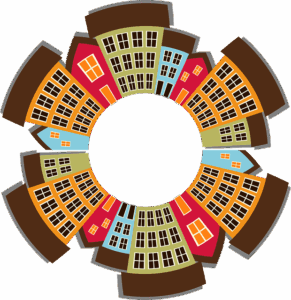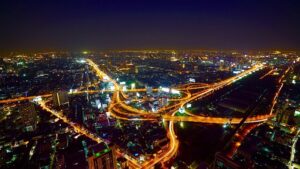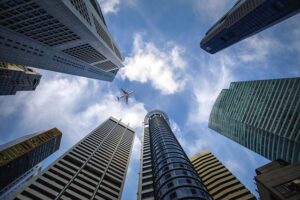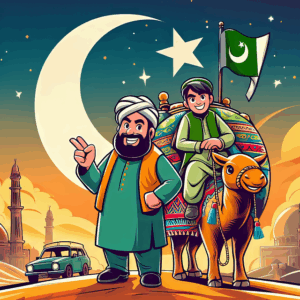Muslimabad Society
Muslimabad Society: A Comprehensive Exploration
Introduction
Welcome to an in-depth exploration of Muslimabad Society, a concept that has garnered significant attention and interest globally. This article aims to unravel the complexities of this phenomenon, offering a comprehensive guide for both scholars and enthusiasts. Muslimabad Society is not merely a geographical or cultural entity but a dynamic system encompassing diverse aspects of life, shaping communities, economies, and societies worldwide. Through this journey, we will uncover its historical roots, global reach, and the profound impact it has on modern society.
Understanding Muslimabad Society: A Definition and Its Components
Definition:
Muslimabad Society refers to a socio-cultural and economic network centered around Islamic principles and values, fostering a unique blend of tradition and modernity. It is characterized by its diverse community, rich cultural heritage, and entrepreneurial spirit. This society has evolved over centuries, adapting to various environments while maintaining core Islamic values.
Core Components:
- Religious Foundation: Islam serves as the bedrock, providing spiritual guidance and shaping moral principles within the society. Mosques and religious institutions play a pivotal role in community life.
- Cultural Diversity: Muslimabad Society embraces a wide array of ethnic, linguistic, and cultural backgrounds, contributing to its vibrant tapestry. This diversity fosters an environment of mutual respect and understanding.
- Entrepreneurial Ecosystem: It is renowned for its entrepreneurial spirit, with individuals driving innovation and business growth. Islamic financial principles, such as interest-free banking, have influenced global economic models.
- Community Cohesion: Strong community bonds and social support systems are hallmarks of this society. Neighborhoods often become extended families, fostering a sense of belonging and mutual aid.
- Education and Scholarship: A rich history of academic excellence is evident in the numerous renowned universities and educational institutions within Muslimabad communities. Islamic scholarship and scientific contributions have left an indelible mark on world history.
Historical Context:
The origins of Muslimabad Society can be traced back to the expansion of Islam, which led to the establishment of diverse empires and civilizations across continents. Over time, these communities developed unique cultural identities while adhering to common Islamic values. The Golden Age of Islam witnessed significant advancements in science, philosophy, architecture, and art, leaving a lasting legacy on global culture.
Global Impact and Trends: A World-Wide Reach
Muslimabad Society’s influence extends far beyond its geographical boundaries, with key trends shaping its global trajectory:
| Region | Impact and Trends |
|---|---|
| Middle East and North Africa (MENA) | The MENA region is the historical birthplace of Muslimabad Society. It continues to be a hub for Islamic financial innovation, with countries like Saudi Arabia and the United Arab Emirates leading in halal banking and investment. The region’s diverse cultures contribute to a rich exchange of traditions and ideas. |
| South Asia | Pakistan, India, and Bangladesh have large Muslim populations, where Muslimabad Society has profoundly influenced social structures and economic practices. Islamic banking and microfinance initiatives have empowered communities, especially women. |
| Southeast Asia | Countries like Malaysia and Indonesia showcase a unique blend of local customs and Islamic traditions. They have established themselves as regional hubs for halal food certification and sustainable business practices. |
| Europe and North America | Muslim immigrant communities in these regions have contributed to the growth of diverse, multi-cultural societies. Islamic financial services are expanding, catering to the specific needs of Muslim populations. |
| Africa | With a significant youth population, African countries offer vast potential for Islamic economic initiatives. Mobile banking and digital finance solutions are gaining traction, providing access to financial services in remote areas. |
Economic Considerations: Driving Forces and Market Dynamics
Muslimabad Society plays a significant role in global economies, with unique market dynamics and investment patterns:
- Islamic Financial Services: The principle of avoiding riba (usury) has led to the development of alternative financial models, such as interest-free loans, murabaha, and Islamic funds. These services have attracted a global client base, with assets under management in halal funds surpassing $2 trillion.
- Entrepreneurship: Muslim communities have a proven track record of entrepreneurship, fostering innovative startups and successful businesses. This entrepreneurial spirit has contributed to the growth of technology hubs in cities like Silicon Valley and Dubai.
- Trade and Commerce: Historical trading routes, such as the Silk Road, facilitated cultural exchange and economic prosperity. Today, Muslimabad societies maintain robust trade networks, contributing to global supply chains.
- Investment Opportunities: Islamic investment principles have gained traction internationally, with a focus on ethical and sustainable investing. This has opened doors for Muslim investors to contribute to global infrastructure and development projects.
Technological Advancements: Revolutionizing the Society
Technology has played a pivotal role in shaping and enhancing Muslimabad Society:
- Digital Finance: Mobile banking apps and digital payment systems have revolutionized financial transactions, especially in regions with limited access to traditional banking services. This technology promotes financial inclusion and facilitates Zakat (charity) donations.
- E-Commerce and Startups: The rise of e-commerce has enabled Muslim entrepreneurs to reach global markets, showcasing their products and services. Startup ecosystems within Muslimabad communities are thriving, fostering innovation in fields like fintech and healthcare.
- Social Media and Community Building: Online platforms have become powerful tools for community engagement and connection. Social media groups and forums allow individuals to share knowledge, coordinate events, and offer mutual support.
- Artificial Intelligence (AI) and Automation: AI applications are being explored in various sectors, from halal certification of food products to automated customer service systems, improving efficiency and accuracy.
Policy and Regulation: Shaping the Landscape
The development and regulation of Muslimabad Society are influenced by various policies and legislative frameworks:
- Islamic Law (Sharia): The cornerstone of Muslimabad Society is Islamic law, which provides a comprehensive legal framework for personal and commercial matters. Sharia-compliant financial regulations ensure ethical practices in banking and investment.
- National Policies: Governments play a crucial role in facilitating or restraining the growth of Muslimabad Society through tax policies, business regulations, and immigration laws. Some countries have implemented supportive measures, while others pose challenges to its development.
- International Cooperation: Cross-border collaboration on issues like financial regulation, anti-money laundering, and tax harmony is essential for fostering a stable and integrated global Muslimabad economy. Organizations like the Organisation of Islamic Cooperation (OIC) facilitate dialogue and cooperation among member states.
Challenges and Criticisms: Overcoming Barriers
Muslimabad Society faces several challenges and criticisms, many of which can be addressed through strategic interventions:
- Stereotypes and Misconceptions: One of the primary challenges is the perception of Muslimabad Society as conservative or regressive. Overcoming stereotypes requires promoting education, cultural exchange, and dialogue to showcase its diversity and progressive aspects.
- Economic Inequality: Critics often highlight economic disparities within Muslim communities. Implementing policies that encourage entrepreneurship, skill development, and access to capital can help address this issue, ensuring a more inclusive society.
- Religious Extremism: The rise of extremist ideologies is a concern. Strengthening educational programs, fostering interfaith dialogue, and promoting moderation are essential to countering radicalization.
- Regulatory Hurdles: In some regions, complex regulatory environments can hinder the growth of Islamic financial institutions. Simplifying regulations and providing clear guidelines will encourage further investment in Muslimabad Society.
Case Studies: Successful Applications and Lessons Learned
1. Dubai, United Arab Emirates: A Global Financial Hub
Dubai has emerged as a global financial center, attracting businesses and investors from around the world. Its success can be attributed to several factors:
- Business-Friendly Environment: The government has implemented policies to support startups, offer tax incentives, and establish efficient regulatory frameworks.
- Islamic Finance Center: Dubai hosts one of the largest Islamic finance centers, hosting various institutions and promoting halal investment and banking practices.
- Diversified Economy: Beyond oil, Dubai has successfully diversified its economy into sectors like tourism, logistics, and technology, ensuring long-term sustainability.
2. Malaysia: Balancing Tradition and Modernity
Malaysia’s Muslimabad Society exemplifies the successful integration of Islamic principles with modern economic practices:
- Halal Industry: Malaysia is renowned for its robust halal industry, encompassing food, cosmetics, and pharmaceuticals. The country’s focus on halal certification has led to global recognition and market access.
- Financial Inclusion: Islamic banking in Malaysia enjoys widespread acceptance, offering various financial products and services tailored to the needs of Muslim citizens.
- Social Welfare Programs: The government has implemented successful social welfare initiatives, such as the Zakat distribution system, ensuring a safety net for vulnerable communities.
3. Microfinance Initiatives in Bangladesh: Empowering Communities
Grameen Bank, founded by Muhammad Yunus, is a celebrated example of microfinance within Muslimabad Society:
- Microcredit and Livelihood: Grameen Bank provides small loans to impoverished individuals, primarily women, enabling them to start businesses and improve their economic status.
- Social Impact: This initiative has lifted millions out of poverty, fostering social mobility and empowering communities.
- Global Replication: The success of Grameen Bank inspired similar microfinance programs worldwide, showcasing the potential of Islamic financial principles in poverty alleviation.
Future Prospects: Emerging Trends and Strategic Considerations
The future of Muslimabad Society is filled with both opportunities and challenges, requiring strategic planning and innovation:
- Digital Transformation: The digital revolution offers immense potential for financial inclusion, entrepreneurship, and community engagement. Developing robust digital infrastructure and promoting digital literacy will be crucial.
- Sustainable Development: Muslimabad Society has a unique opportunity to lead in sustainable practices, leveraging Islamic teachings on environmental stewardship. Green financing and eco-friendly business models can gain traction.
- Health and Wellness: The healthcare sector presents significant growth opportunities. Islamic-compliant medical tourism and halal pharmaceutical products are emerging trends.
- Global Cooperation: Enhanced collaboration among Muslim countries and organizations can foster economic integration, knowledge sharing, and cultural exchange.
- Education and Research: Investing in education and research institutions will produce the next generation of innovators and scholars, ensuring the society’s continued relevance.
Conclusion: A Dynamic Force for Good
Muslimabad Society is a vibrant and diverse global network that continues to shape and be shaped by modern realities. Its ability to adapt, innovate, and foster community cohesion makes it a powerful force for positive change. By embracing its core values while navigating the challenges of the modern world, this society can contribute significantly to economic growth, social welfare, and cultural enrichment.
FAQ Section: Addressing Common Queries
Q: What sets Muslimabad Society apart from other socio-economic structures?
A: Muslimabad Society is distinct due to its deep-rooted Islamic principles, diverse cultural backgrounds, and entrepreneurial spirit. It blends tradition with modernity, creating a unique ecosystem that fosters community and innovation.
Q: How does Islamic finance contribute to the global economy?
A: Islamic finance offers alternative financial models, such as interest-free loans and investment schemes, attracting a global client base. It promotes ethical and sustainable investing, diversifying financial systems and catering to diverse economic needs.
Q: Can you provide examples of successful Muslimabad Society initiatives in Africa?
A: Absolutely! Mobile banking and digital finance solutions have revolutionized access to financial services in Africa. For instance, M-Pesa in Kenya, a mobile money transfer service, has enabled millions to manage their finances and participate in the formal economy.
Q: What role does education play in the development of Muslimabad Society?
A: Education is a cornerstone of this society. It fosters intellectual growth, promotes cultural exchange, and empowers individuals. Historic Islamic universities like Al-Azhar in Egypt and Al-Qarawiyyin in Morocco are testaments to its rich academic heritage.
Q: How can Muslimabad Society address economic disparities?
A: Implementing policies that encourage entrepreneurship, skill development, and access to capital can help reduce economic disparities. Promoting financial literacy and providing microfinance opportunities have proven effective in empowering marginalized communities.

Shopping Havens Near Karachi’s Muslimabad Society
Karachi's Muslimabad Society Market is a vibrant shopping hub showcasing traditional textiles,.......

Unveiling Karachi’s Historic Jail Chowrangi’s Cultural Legacy
Jail Chowrangi in Karachi's heart is a historic gem showcasing the city's rich past throug.......

Muslimabad Society Karachi: Resident Feedback for Community Flourish
Muslimabad Society, Karachi, is a diverse, resilient community thriving for decades against the back.......

Karachi’s Muslimabad Society: A Taste of Pakistani Street Food
Karachi's Muslimabad Society is a culinary treasure trove in the bustling metropolis, offering.......

Exploring Karachi’s Muslimabad Society Grocery Scene
Karachi's Muslimabad Society boasts vibrant, family-run grocery stores renowned for diverse cul.......

Karachi’s Gourmet Gems: Dining Near Muslimabad Society
Karachi's Muslimabad Society is a foodie destination with diverse fine dining options. Top rest.......

Karachi’s Lines: Unraveling Proximity in Urban Infrastructure
Karachi's complex urban structure demands strategic planning to enhance accessibility and conne.......

Karachi’s Authentic Pakistani Cuisine: A Taste of Muslimabad Society
Karachi's culinary scene near Muslimabad Society is a vibrant mix of traditional and contempora.......

Karachi’s Street Food: Muslimabad Society’s Culinary Secrets Unveiled
Karachi's Muslimabad Society is a culinary hotspot showcasing the city's diverse culture t.......

Unveiling Karachi’s Vintage Charm: Muslimabad Society’s Legacy
Karachi's Muslimabad Society, a historic neighborhood, preserves diverse cultural heritage thro.......